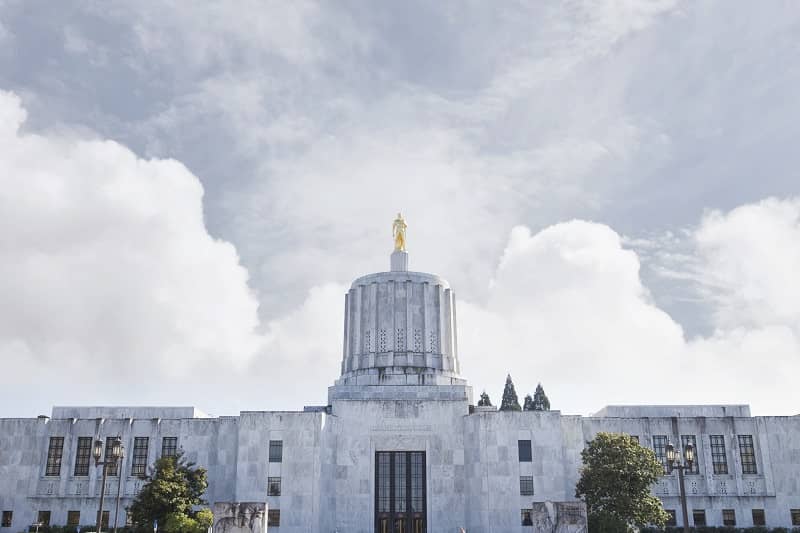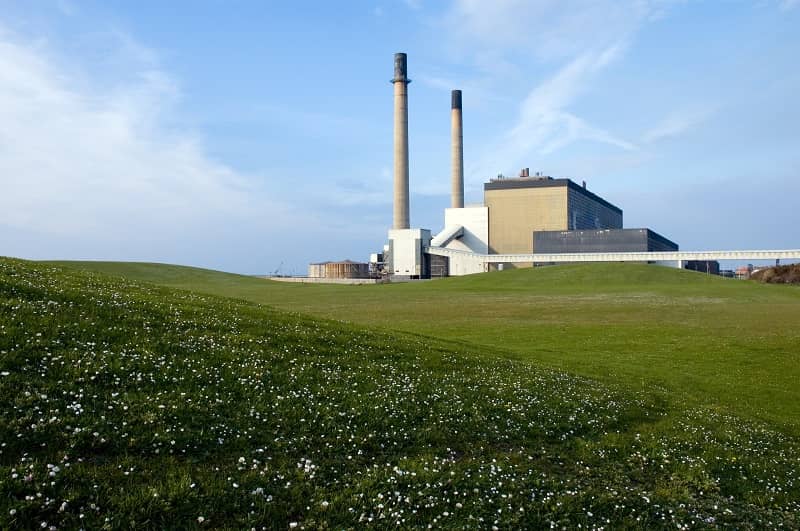

Summary
Greenhouse gas reduction strategies should strike a balance between economic costs of regulation and the benefits of mitigating costs that future climate change could impose. Unfortunately, the projections of future climate change are highly uncertain, and thus the estimated costs or benefits of not acting are highly suspect. Implementing a cap-and-trade program in Oregon would create economic burdens and provide little or no environmental benefit.
Word count: 800
Policymakers in Oregon have concluded that global warming is a crisis, that the use of fossil fuels is the primary cause of warming, and that state policies must be enacted to stabilize the global climate. Because of this, Oregon has adopted one of the most ambitious greenhouse gas emissions reduction goals in the world; and policy initiatives such as cap-and-trade programs to regulate greenhouse gas emissions are quickly becoming a dominant feature of statewide public policy.
Any greenhouse gas reduction strategy should strike a balance between economic costs of regulation and the benefits of mitigating costs that future climate change could impose, assuming that regulations can be effective at changing global climate in the first place. Unfortunately, the projections of future climate change are highly uncertain, and thus the estimated costs or benefits of not acting are highly suspect. In addition, being ranked 48th in carbon intensity, Oregon plays a very minor role in greenhouse gas emissions in the United States. Implementing a cap-and-trade program would create economic burdens and provide little or no environmental benefit.
While the benefits of greenhouse gas regulation are speculative, the costs are very real. An independent economic study, “Oregon Greenhouse Gas Reduction Policies: The Economic and Fiscal Impact Challenges,” was written and prepared under a contract between Cascade Policy Institute and QuantEcon, Inc. The study assessed the quantifiable and measurable costs in the debate over whether to implement a cap and trade program or any other wide-ranging greenhouse gas reduction strategy and found the costs of enacting such policies to be tremendous.
On October 27, 2008, Governor Ted Kulongoski announced his Climate Change Agenda introducing a comprehensive legislative package that attempts to aggressively mitigate the impacts of global warming. The main feature of the agenda is an adoption of a regional cap-and-trade program through the Western Climate Initiative. The program “caps” total emissions at some arbitrary level and then issues permits, each of which allows a certain amount of emissions. This cap becomes more stringent over time. Coupled with population growth, emissions per capita would have to decline sharply in order to reach the ambitious goals. The distribution of permits may require their purchase, or may be distributed without initial cost. If a facility wishes to emit more than its endowed permits allow, the facility must purchase permits in the market. Sellers would be those facilities that emit less than their permits allow—either because they have low-cost ways of reducing emissions, reduce their overall output or choose to go out of business. In theory, the trading of permits in the cap-and-trade program is supposed to be a cost-effective way to reduce greenhouse gases.
However, the truth is different from theory. The study finds that economic vitality, energy use and carbon dioxide emissions have been tightly cointegrated historically; and energy strongly “causes” economic vitality. Because of this (and the absence of any silver-bullet, low cost/high effectiveness technological innovations), the cost to the Oregon economy of meeting the emissions reduction goals are expected to be substantial.
[ —> View figures on second page of PDF version ]
The study predicts that Oregon’s economic growth to 2020 would be cut approximately in half (figure 1). Under greenhouse gas reductions the Oregon economy would grow only $58.9 billion compared to the baseline of $107.2 billion. This means that businesses and industries will no longer be competitive in Oregon and may move elsewhere, creating job losses and significant financial burdens on Oregonians.
Greenhouse gas reductions would result in 90,000 fewer Oregon jobs (figure 2) than would have existed in the absence of reductions. Not only does this drastically hurt Oregon families by losing family wage jobs, but it also puts a large strain on state revenue programs such as unemployment insurance.
Stress on state and local revenues will be further exacerbated by lower economic growth. The economic study estimates that 2020 state and local revenues will be $4.4 billion dollars lower under greenhouse gas reductions, making it even more difficult to fund social programs and help households adapt to significantly higher fuel and energy prices.
Although a cap-and-trade program is essentially a complex tax on energy that will have a direct and negative effect on businesses and individuals while offering little or no environmental benefit, there are other strategies that can be used. The study suggests alternative solutions, such as congestion pricing and a carbon tax, that potentially could avoid the high costs of cap-and-trade and offer both environmental and economic benefits. Congestion pricing can strengthen the economy while helping to resolve carbon emissions problems associated with excess congestion, travel, and stop-and-go vehicle use. Revenues from a carbon tax could be made “revenue neutral,” minimizing the impact on the economy. All alternative and complementary strategies that could provide greater economic and environmental benefits should be considered before charging ahead, with little regard to the cost, on a cap-and-trade program.
Attention editors and producers:
Cascade Commentaries are provided for reprint in newspapers and other publications, with credit given to author(s) and Cascade. Contact Cascade to arrange print or broadcast interviews on this commentary topic.
Electronic text files are available online at www.cascadepolicy.org.
Please contact:
Nancy Wheaton
Cascade Policy Institute
4850 SW Scholls Ferry Rd.
Suite 103
Portland, Oregon 97225
Phone: (503) 242-0900
Fax: (503) 242-3822
www.cascadepolicy.org
[email protected]
Cascade Policy Institute is a tax-exempt educational organization as defined under IRS code 501(c)(3). Nothing appearing in this Cascade Commentary is to be construed as necessarily representing the views of Cascade or its donors, or as an attempt to aid or hinder the passage of any bill before any legislative body. The views expressed herein are the author’s own.











